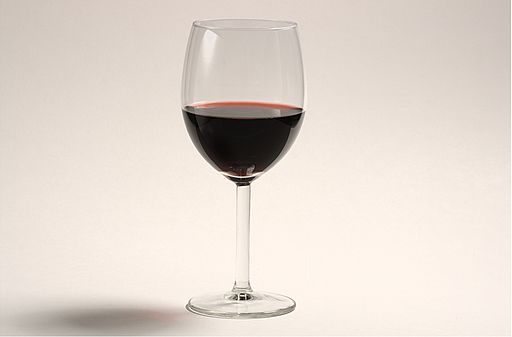Red wine and red grapes contain resveratrol, a substance which appears to protect against hearing loss and cognitive decline, researchers from the Henry Ford Hospital, Detroit, reported in Otolaryngology-Head and Neck Surgery.
In an animal experiment, the scientists found that laboratory rats would suffer less from the long-term effects of noise-induced hearing loss if they consumed resveratrol before listening to extended periods of loud noise.
Study lead author Michael D. Seidman, director of the Division of Otologic/Neurotologic Surgery in the Department of Otolaryngology-Head & Neck Surgery at Henry Ford Hospital, said:
“Our latest study focuses on resveratrol and its effect on bioinflammation, the body’s response to injury and something that is believed to be the cause of many health problems including Alzheimer’s disease, cancer, aging and hearing loss.”

150 milliliters of red wine has between 0.30 and 1.07 milligrams of resveratrol
Resveratrol, a powerful chemical, appears to protect against the inflammatory processes associated with hearing loss, cognition and ageing, the authors added.
Several studies have indicated that resveratrol, a compound in red wine, has anti-aging properties.
Nearly 20% of Americans live with some degree of hearing loss. For the majority of them, hearing progressively gets worse as they get older. Among US troops, noise-induced hearing loss is a growing medical issue. Over 12% of service personnel who return from Iraq and Afghanistan have significant hearing loss.
Noise induced hearing loss is the cause of several problems, including:
- Obviously, the person’s inability to hear properly
- Sleeping difficulties
- Problems with communication
- A higher risk of heart disease because of a greater prevalence of hypertension, and blood lipid and sugar levels
Dr. Seidman and team have published several papers about noise-induced hearing loss, as well as resveratrol, a powerful antioxidant with anti-inflammatory properties. Resveratrol is a red-grape constituent. Resveratrol is also present in blueberries, peanuts and other plants.
Resveratrol is also present in white wine and white grapes, but at lower concentrations.
Resveratrol content in wines and grape juice (Source: Wikipedia)
- Red wine (global average)
mg/liter 1.98-12.59. mg/150ml 0.30-1.07 - Red grape juice (global average)
mg/liter 1.14-8.69. mg/150ml 0.17-1.30 - White wine (Spanish)
mg/liter 0.05-1.80. mg/150ml 0.01-0.27
In this latest study, the scientists concentrated on what impact resveratrol might have on hearing loss, cognition and aging.
The scientists explained that their study was designed to “identify the potential protective mechanism of resveratrol following noise exposure by measuring its effect on cyclooxygenase-2 (or COX-2, key to the inflammatory process) protein expression and formation of reactive oxygen species, which plays an important role in cell signaling and homeostasis.”
They found that acoustic overstimulation caused an up-regulation of COX-2 protein expression after a certain amount of time. They also observed that resveratrol considerably reduced reactive oxygen species formation, inhibited COX-2 expression and reduced noise-induced hearing loss in rats that had been exposed to loud noise for prolonged periods.
Dr. Seidman said “We’ve shown that by giving animals resveratrol, we can reduce the amount of hearing and cognitive decline.”
In an Abstract in the same journal, the authors wrote:
“COX-2 levels are induced dramatically following noise exposure. This increased expression may be a potential mechanism of noise-induced hearing loss (NIHL) and a possible mechanism of resveratrol’s ability to mitigate NIHL by its ability to reduce COX-2 expression.”
Written by Christian Nordqvist